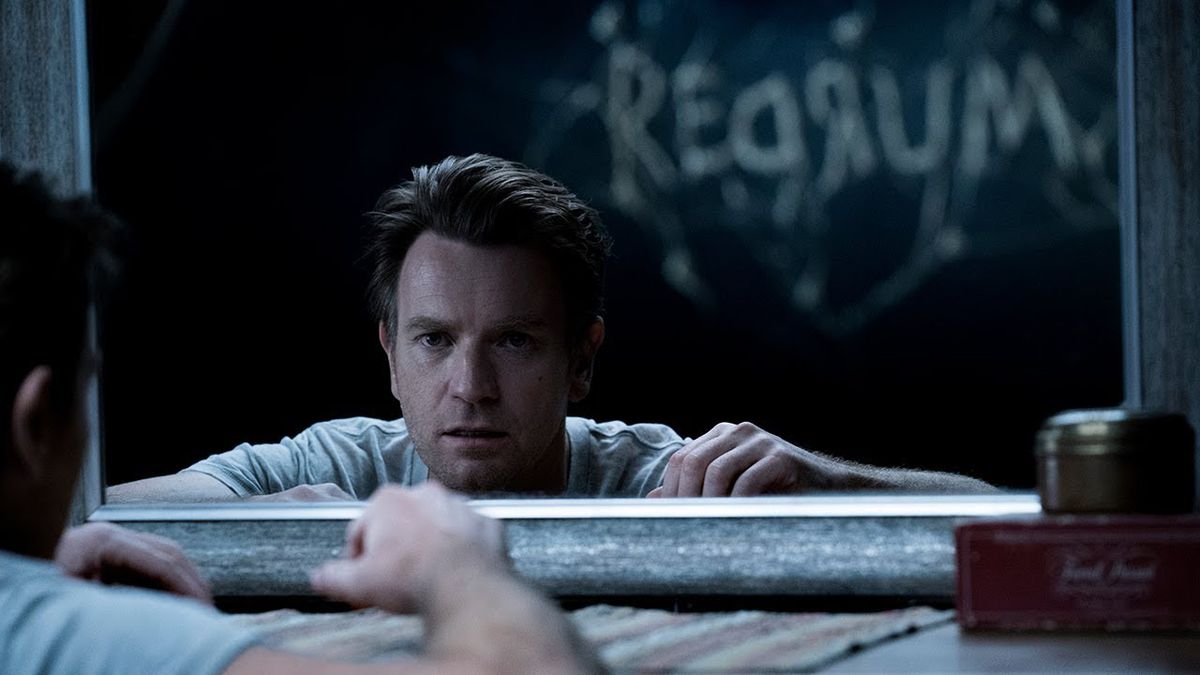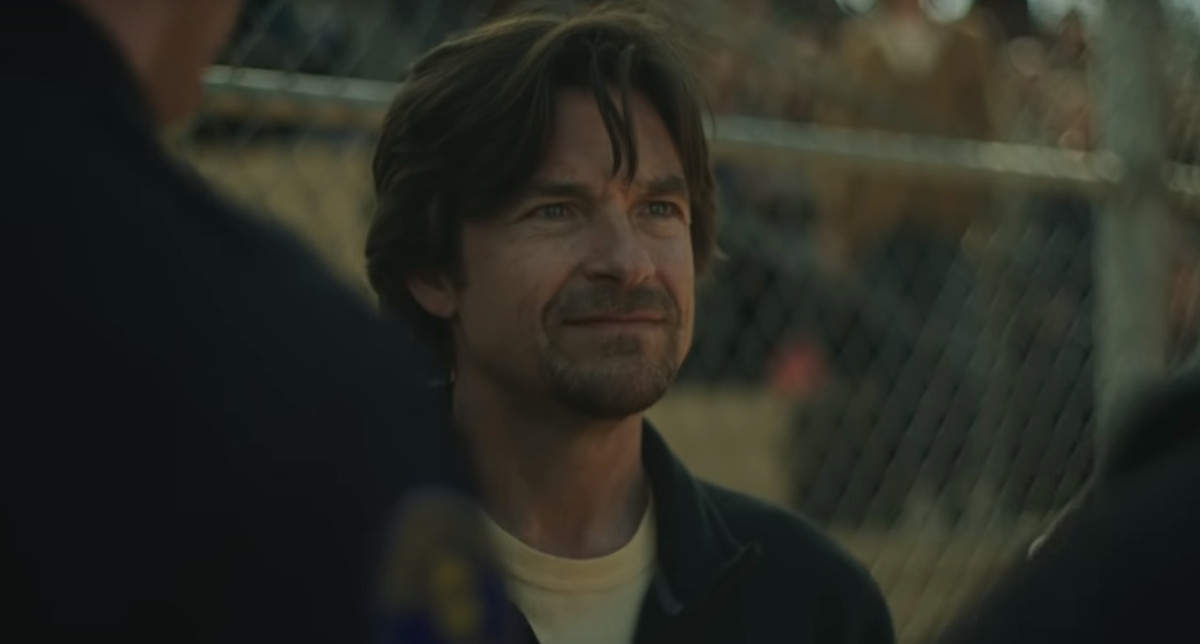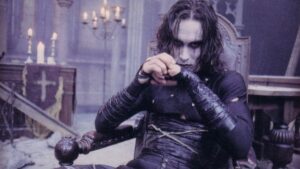Like a horror-movie villain who just will not die, Stephen King haunts us. We’re in the middle of a King revival in movies and TV. The gold rush for marketable intellectual property has made Hollywood return to the immensely popular author’s work in a spectacular way. While King’s books have always had a reasonably steady on-screen presence over the years, the King explosion over the last four years has been remarkable. We’re getting first-time adaptations of works old and new, like Gerald’s Game, Doctor Sleep, In the Tall Grass, and The Outsider, alongside remakes of previously adapted works like Pet Sematary and IT. And then there are the weird experiments like Hulu’s short-lived Castle Rock, which tried to remix elements of King’s most popular horror works into one meta TV show, or Chapelwaite, the recent Epix series expanding on his short story Jerusalem’s Lot.
The success of these projects is consistent with King’s track record on film and TV adaptations as a whole: They’re spectacularly uneven. The critical batting average, however, is much higher than it was in previous decades, and it’s reductive to reduce the current wealth of King content to rank opportunism. King has, for better or worse, left an indelible mark on the culture, and continues to — even as it seems the culture has left him behind, or that he’s roamed even further from the horror genre he’s almost unilaterally celebrated for.
Even though I’ve been thinking about him and reading him for years, it wasn’t until a couple weeks ago, reading the 2003 foreword to The Drawing of the Three, the second book in his Dark Tower fantasy epic, that I think I finally got Stephen King.
There, King writes about what led him to create the series, which at that point was five books in, and would rapidly conclude with two more a year later. He’s trying to figure out why he wanted to write these books. He chalks it up to the American in him: the urge to “build the tallest, dig the deepest, write the longest.” This, I think, is King’s lasting influence, and why generation after generation comes back to him. It’s his Americanness — not the lived reality of America, which many have claimed is what perennially draws people to his work, but its fiction, made flesh. The hollow American dream, repackaged and sold to many, made flesh in this tall pale man from Maine.
The legend of Stephen King

Whenever questions around Stephen King’s longevity and prominence as an author come up, two fundamental aspects to his legend tend to be mentioned. The first is perhaps the greatest: He is among the most prominent and influential figures in horror fiction, a master with a deep understanding of what scares us all. Then there’s the fact of his success, which is usually tied to whis work ethic: King is voluminous, a prolific author who publishes multiple books a year, and is a consistent bestseller.
Like a lot of legends, this one has some truth to it, but a healthy amount can also be undermined by facts. Some of them are trivial — like the fact that King has often been reluctant to even call himself a horror writer, and has amassed a huge body of work outside that genre. (His most recent fixation is crime fiction — his latest novel, 2021’s Billy Summers, is a classic pulp crime story about a hitman on one last job.) Others are a little more substantial, like the fact that his influence and critical acclaim is still largely limited to his heyday, the dazzling period from his debut with 1974’s Carrie until the 1980s.
The exact point where that heyday ends is extremely debatable, but I’d personally end it with 1987’s Misery. During that period, he produced the majority of his most widely adapted and most-referenced works — to such overwhelming success that afterward, King became an institution and a fixture, one who could withstand the middling reception of his later output, because his early work never failed to create new converts.
Of those two fundamental parts of King’s legend, the latter one is arguably most important. No one writer can lay a universally unique claim to an understanding of the human psyche, even if their work is in fact singular. The realities of publishing — an upsettingly inequitable field — makes it hard to ignore that what gets published isn’t representative of what could be available.

That’s not to diminish King’s skill as a character writer. Both at his best and his worst, he’s capable of consistently producing nearly frictionless prose that envelops the brain and makes plowing through doorstop novels uniquely pleasurable. It does not take long for a budding Stephen King fan to be dazzled by his bibliography. King himself will often note that he’s been outdone many times over by other more prolific writers. But it’s his consistent and unprecedented success that makes his output so remarkable, and because of that success, stories of his work ethic become alluring in a unique way.
In his memoir On Writing, King speaks self-effacingly about his work ethic — tossing off asides about absurd it is that interviewers always want to know the secret of his success, — and also delving into it in vital detail. King’s creed is consistency, an unromantic view of the craft that sees him cranking out 10 pages a day, without exception. Most writers, he believes, should adopt a similar commitment to routine, to whatever degree fits their life: a regular time and place for words, every day, without fail.
It’s here, in the gap between King the craftsman and King the legend, that his fundamental Americanness is most pronounced. It’s the dream of good old-fashioned bootstraps capitalism, that this guy who worked in laundry rooms, taught high-school English, and struggled through working-class jobs could sit down, write 10 pages a day, rack up rejections, and then become one of the world’s most consistent bestsellers. Only in America, right? He could do it. So could you.
Deadly momentum
As the beneficiary of good fortune and great privilege, Stephen King is one of a few fiction writers who, if he desired, could have his every idle thought published, and garner a healthy profit from it. Oftentimes, according to some devout King fans, it seems like he does. In spite of the wide variety in his work — the human drama of stories like The Body and Rita Hayworth and the Shawshank Redemption making just as much of an impression as his horror — there is a restlessness to King’s stories that is nigh-universal.

From horror to coming-of-age to pulp thrillers, King’s stories are the American expanse rendered in pages upon pages. His characters’ momentum is matched by his prose, even if they often are headed to places of no consequence, except maybe their own doom, or to a frustration regularly shared by King’s readers.
There’s a searching element to his work, the resolute belief that if we keep moving — from place to place, or from character to character — we’ll figure it out, by our own bootstraps. When we do not, there is horror. This is the key, the Dark Tower I’ve built to explain this man: Stephen King is the American expanse, a gaping maw that has only grown over the decades, and it’s big enough to swallow us whole many times over, in myriad ways.
Throughout his time publishing sprawling books, he’s made that anxiety plain to us many times over, connecting us with countless other people, then horrifying us with that connection. Consider the things that have changed around us over the course of his career, the anxiety-inducing unknowns he’s shepherded readers through: Cable television and cellular phones, the internet and the infinite scroll, all thrusting us into a better version of the world with the promise of more, all getting worse the longer we move forward into it. Manifest destiny, any way you like it.
Again, another excerpt from that 2003 foreword to The Drawing of the Three:
“That head-scratching puzzlement when the question of motivation comes up? Seems to me that that is also part of being an American. In the end we are reduced to saying It seemed like a good idea at the time.”
It’s pretty widely known that Stephen King is terrible at endings, a habit widely attributed to his self-professed refusal to outline, and his insistence on discovering the story as he writes. Perhaps this is the most American thing about him: He’s an unrepeatable, unprecedented success in his field, fueling other people’s dreams, even though he never fully knows where he’s taking us. This is, I think, the secret of Stephen King, and the most American illusion: that a people can be sustained on dreams and momentum, and that disaster can be averted, if we simply don’t think too much about how it all might end.
Source: https://www.polygon.com/features/22753149/stephen-king-why
- 1980s
- 2020
- afterward
- All
- america
- American
- among
- Anxiety
- around
- average
- BEST
- body
- Books
- call
- capitalism
- Career
- content
- continues
- Couple
- Crime
- Culture
- Current
- day
- decades
- detail
- disaster
- Doctor
- Doom
- Drama
- dreams
- Early
- ends
- English
- expanding
- FANTASY
- Fiction
- Figure
- Film
- Finally
- First
- Forward
- gap
- Gold
- good
- great
- HBO
- here
- Hollywood
- How
- HTML
- HTTPS
- huge
- human
- i
- idea
- important
- influence
- Institution
- intellectual property
- Internet
- IT
- Job
- Jobs
- Key
- King
- latest
- Led
- Limited
- Long
- longevity
- Maine
- Majority
- Making
- man
- mark
- Meta
- Momentum
- Most Popular
- motivation
- move
- Movies
- Other
- People
- phones
- Popular
- Produced
- Profit
- projects
- property
- Publishing
- readers
- Reading
- realities
- Reality
- record
- reduce
- Rooms
- rush
- sees
- Series
- shared
- Short
- sleep
- So
- sold
- Stories
- success
- television
- The
- the world
- Thinking
- time
- track
- tv
- unique
- us
- View
- Warner Bros
- Wealth
- What
- WHO
- words
- Work
- works
- world
- writer
- year
- years











